Council blamed for Bristol Beacon upgrade costs doubling, watchdog says
- Published
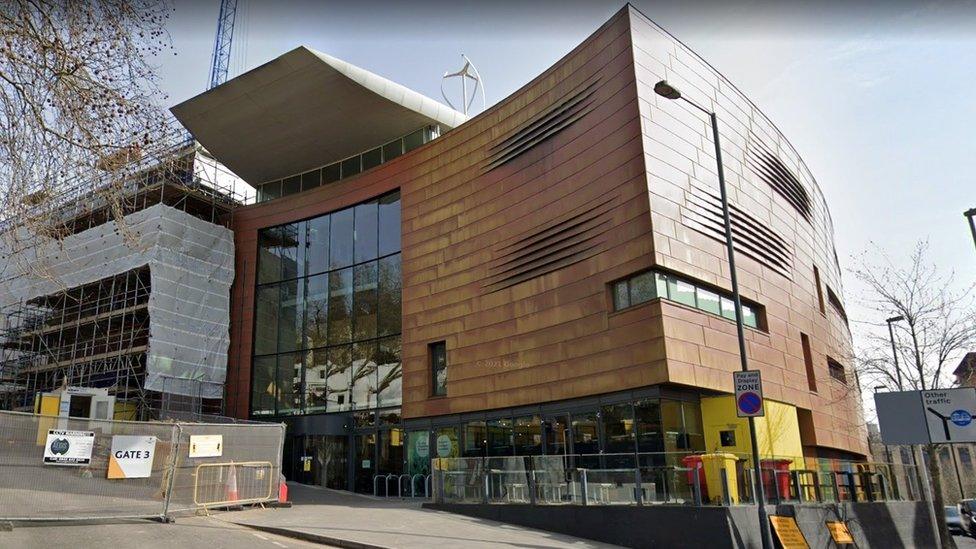
Bristol Beacon, previously known as Colston Hall, is a concert hall and Grade II listed building
A watchdog has blamed the city council for the cost of Bristol Beacon's refurbishment more than doubling.
The revamp of the Victorian music venue, owned by Bristol City Council, has spiralled from £52m to £107m.
Auditors Grant Thornton said the council "underestimated the complexity and difficulty" of the work and failed to have "effective arrangements" in place.
Bristol City Council has been asked to comment.
The assessment was published in the auditor's 2020/21 interim annual report, according to the Local Democracy Reporting Service.
It comes weeks after it was revealed the building is valued at zero pounds in Bristol City Council's accounts and the authority has written off £39m on the project.
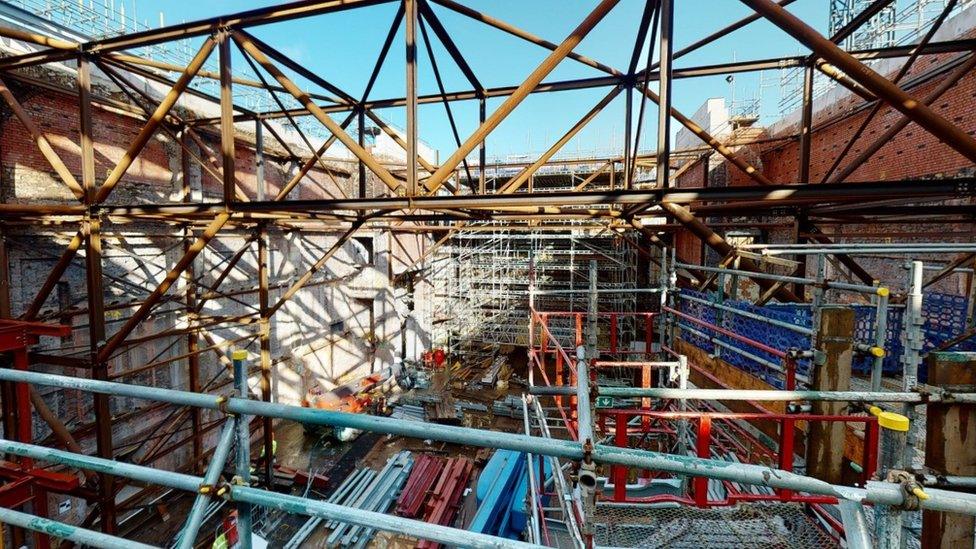
Bristol City Council owns the building which has been closed since 2018
On-site investigations found the building's structure to be a "worst-case scenario" resulting in the council's share of the bill ballooning from £10m to £54.5m.
Additional funding was approved by mayor Marvin Rees's Labour cabinet in March last year with support from cross-party scrutiny councillors amid concerns about simply letting the former Colston Hall "disintegrate".
In its value-for-money report, presented to the authority's audit committee on 27 June, Grant Thornton said: "The failure to have effective management arrangements in place from the start of the project and to have any cost certainty before entering into the contract has resulted in delays and increased costs.
"The council has strengthened the management and project management arrangements for Bristol Beacon, but these new arrangements are not yet consistently applied across the council."
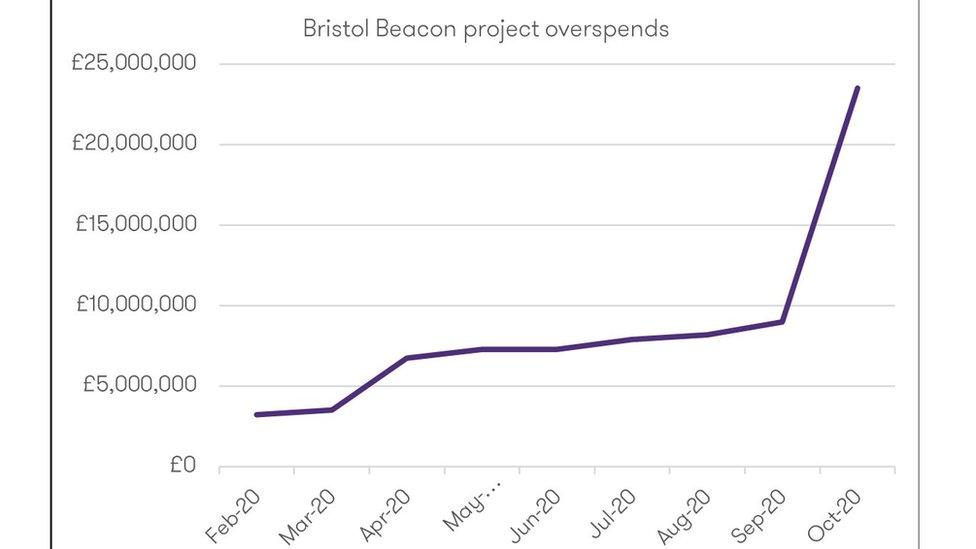
The Bristol Beacon refurbishment costs have more than doubled
Grant Thornton did not identify any "significant weaknesses" in the authority's value-for-money arrangements in 2020/21 but identified 13 improvement recommendations, including taking steps to avoid a repeat scenario.
"Whilst we recognise that effective project management arrangements may not have significantly changed the outcome, they would have ensured the council was aware of the escalating risks sooner, thereby reducing the costs required to address the situation and reduce the amount of time the venue has been closed," it added.
A city council management comment in the report said a delivery framework had been developed which had received a "reasonable" assurance rating, with the intention of moving to "substantially assured" later.
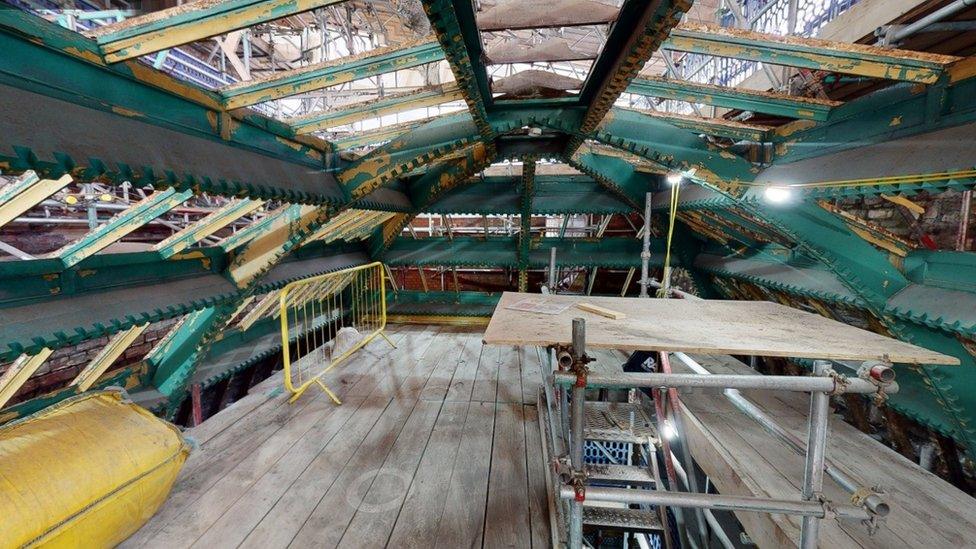
The venue is expected to re-open in late 2023

Follow BBC West on Facebook, external, Twitter, external and Instagram, external. Send your story ideas to: bristol@bbc.co.uk , external
Related topics
- Published27 April 2022
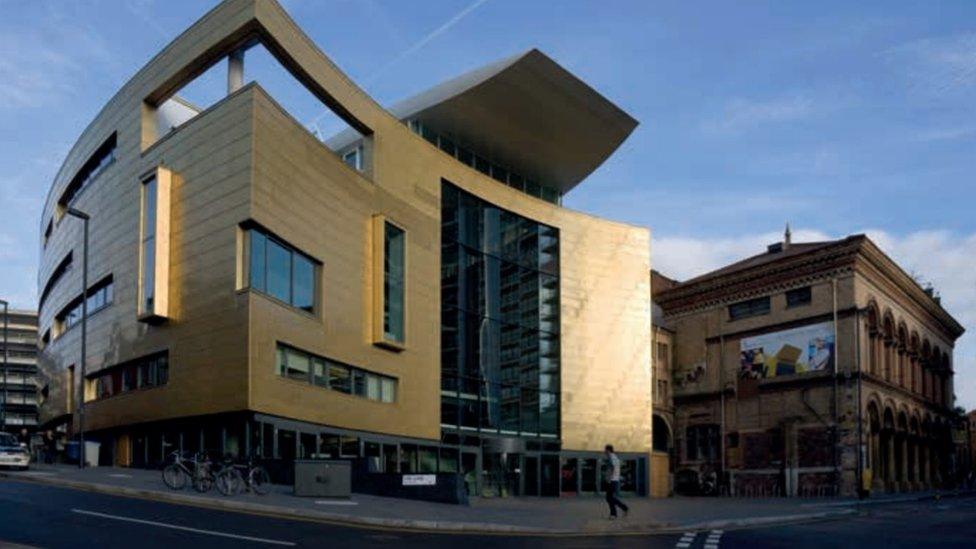
- Published22 May 2021
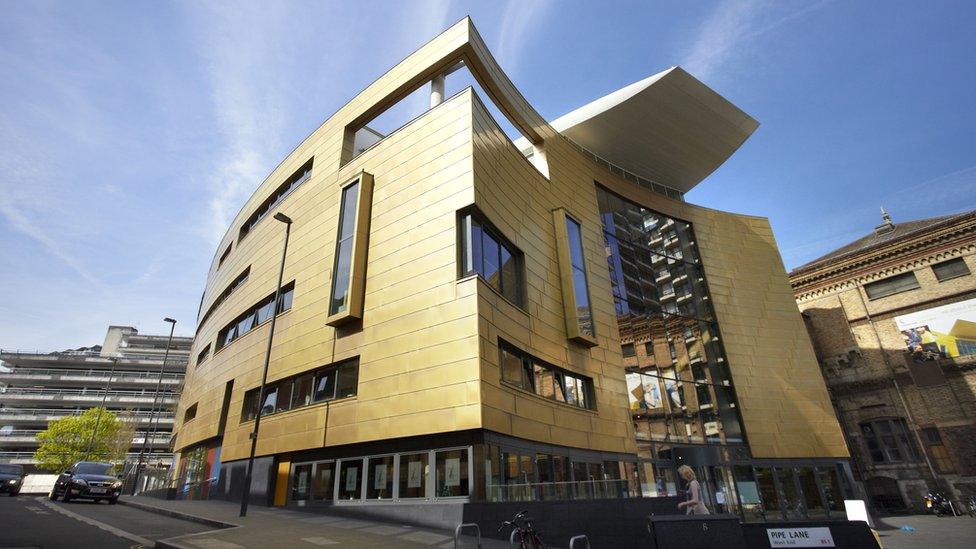
- Published9 March 2021
